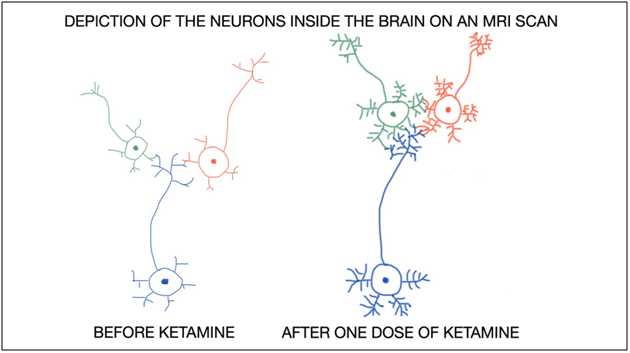NAD+ THERAPY
NAD+ (Nicotinamide Adenine Dinucleotide) is an essential coenzyme found in every cell of the body. It regulates our cellular metabolism by maintaining healthy mitochondria. These are the structures found inside each of our cells that are responsible for converting the nutrients that we eat into energy. NAD+ is also involved in many other important biological processes, such as proper immune system function, DNA repair, nerve growth and vitality, production of neurotransmitters (i.e. dopamine, serotonin, norepinephrine) andmany anti-aging processes.
Our bodies’ natural NAD+ levels progressively decline as we age. This can lead to cellular dysfunction and an inability to repair damaged DNA. This infusion will boost your NAD+ levels, helping your body to more effectively:
- produce and regulate energy
- make new proteins and other important cellular components
- repair DNA
- improve communication between neurons and other cells throughout your body
IV NAD+ Therapy is now recognized for its ability to improve cardiovascular health, athletic performance, cognitive function, neuroprotection, weight management and anti-aging. NAD+ Therapy is also an effective treatment for opioid and alcohol addiction, post-traumatic stress disorder, anxiety and depression. It is also used to treat neurodegenerative conditions, such as multiple sclerosis, Parkinson’s and Alzheimer’s diseases.
Our NAD+ Therapy contains the following premium ingredients:
Benefits:
Improves brain function, memory and mood by increasing the production of serotonin, dopamine and norepinephrine. Improves cardiovascular health and athletic performance. Regulates metabolism by maintaining healthy mitochondria. Aids in weight loss and promotes youthfulness.
Key Ingredients:
- NAD+
Recommended sidekick:
The Warrior. Replenishes your body with vital nutrients while detoxifying and eliminating toxins from the body. It also improves memory, concentration and focus.
Frequently Asked Questions
NAD+ stands for Nicotinamide Adenine Dinucleotide. It is an essential coenzyme found in every cell of the body and is required in hundreds of different biochemical reactions. Example of which include: energy production (ATP formation), DNA repair, using DNA to make things such as proteins, communication between nerves and other cells and other enzymatic activities that speed up a variety of chemical reactions throughout the body.
NAD+ supplementation is given to help treat conditions such as:
- addiction
- alcoholism
- anxiety
- fatigue
- stress
- depression
- neurodegenerative diseases
- PTSD
- substance abuse
It is also given to:
- improve athletic performance
- enhance weight management
- provide anti-aging benefits
NAD+ is given through an IV. It generally takes between 5-6 hours to complete the infusion.
As we age, our NAD+ levels naturally decline. In addition, stress, illnesses, addiction and depression can deplete our bodies’ own NAD+ levels even more. Providing NAD+ through IV supplementation can help:
- restore brain function
- increase clarity of mind
- provide better problem-solving ability
- improve focus and concentration
- increase energy
- improve mood
- decrease anxiety
- reduce cravings
This treatment can rapidly repair cells throughout the body, including neurons inside the brain. As a result, cells begin producing more energy, good genes are “turned on”, DNA is repaired and many other functions are optimized.
NAD+ Therapy initially entered the field of medicine as an effective, non-toxic treatment for addiction. It has helped thousands of people overcome their addiction to opiates, alcohol and other chemical substances.
Research investigating brain health and longevity also discovered that NAD+ is an essential coenzyme that determines how fast we age and how healthy we are throughout our lives. Studies show that replenishing cellular levels of NAD+ can have powerful neuroprotective qualities. It helps to repair DNA, reduce inflammation and turn on enzymes that actually slow down the aging process.
Those receiving NAD+ Therapy report:
- increased energy
- improved mood
- better eyesight and hearing
- increased mental clarity
- improved focus, concentration and memory
- decreased pain
- reduced cravings
- reduced or diminished withdrawal symptoms
- better sense of purpose in life
While most of our patients are looking to maximize their health and wellness, improve their sport performance or rewind their biological clock, we also accept those with alcohol, opioid or benzodiazepine dependence. We do recommend, however, that IV NAD+ Therapy not be the only treatment that you receive. We strongly advise that you also receive treatment from addiction specialists and counselors for a more holistic approach to your addiction. We will be referring you to an addiction specialist and/or counselor if you don’t have one of your own.
For optimal benefit, we recommend receiving 4-10 consecutive treatments (called a loading dose). The reason for this is to jumpstart your body and get it on a pathway to better health. If you are not able to receive that many treatments, there is still benefit to receiving NAD+ Therapy but the effects may not be quite as noticeable.
Following the initial loading dose, you then enter the maintenance phase. Our goal during this phase is to maintain the beneficial effects that you experienced from the loading dose. Most clients sign up for an initial 5-day loading dose and then return weekly or monthly for an additional boost.
Loading doses may be repeated up to three times per year for maximal results.
*For those suffering from an alcohol or narcotic addiction, the recommended regimen is 10 consecutive days of IV NAD+ therapy. This is to help detoxify the body and replenish your body’s natural energy stores.*





